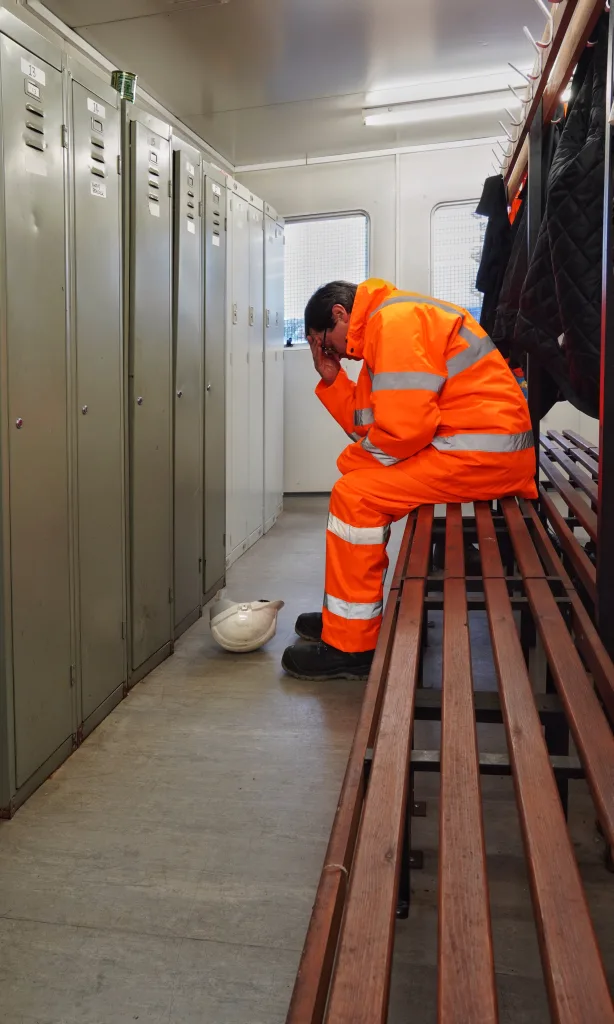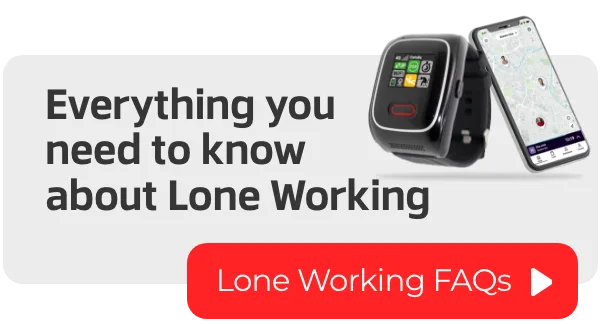Home > Knowledge Hub > Blog
Is Your Business Doing Enough to Protect Lone Workers?
Whether your team includes engineers travelling between sites, carers making home visits, or employees working late shifts alone, lone working is likely already part of your business — and with it comes specific safety responsibilities.
Lone workers operate without direct supervision, which makes them more vulnerable in the event of an emergency, accident, or threat. As an employer, you have a legal and moral duty to ensure their health, safety, and well-being — but are your current measures enough?
Why Lone Worker Safety Deserves More Attention
Working alone doesn’t automatically mean working unsafely, but the risks are undeniably higher:
- Delayed help in emergencies – Without colleagues nearby, lone workers may be unable to raise the alarm or receive help quickly.
- Increased exposure to violence or aggression – Especially in public-facing roles or where staff enter other people’s homes.
- Mental health risks – Isolation, stress and anxiety are more common for lone workers than those in team settings.
- Health and safety compliance – Failure to protect lone workers can result in reputational damage, fines, or even prosecution.
These are not rare scenarios. According to the British Safety Council, there are around 8 million lone workers in the UK — nearly a quarter of the workforce. With risks this widespread, it’s essential your organisation is doing everything it can.
Are You Meeting Your Legal Duties?
UK law doesn’t prohibit lone working, but it does require employers to assess and manage the risks. Key legislation includes:
- Health and Safety at Work etc. Act 1974 – Requires employers to protect the health, safety, and welfare of all employees.
- The Management of Health and Safety at Work Regulations 1999 – Mandates thorough risk assessments and controls for identified hazards.
- The Corporate Manslaughter and Corporate Homicide Act 2007 – Holds companies accountable if serious failings lead to a fatality.
It’s not just about having policies on paper. You need active, effective measures in place.

5 Key Questions to Assess Your Lone Worker Protection
- Have you carried out a specific risk assessment for lone workers?
Generic workplace risk assessments often overlook the unique challenges of lone working. - Do your lone workers know what to do in an emergency?
Clear guidance, regular training, and access to emergency support are vital. - Are there systems in place to maintain regular contact?
Scheduled check-ins, automated apps, or monitored devices help bridge the supervision gap. - Do you have a lone working policy?
This should outline expectations, procedures, and responsibilities for all parties. - Are you using technology to enhance safety?
Wearables, smartphone apps, and 24/7 monitoring can transform your ability to respond to incidents quickly.
If you’re unsure about any of the answers above, it’s time to review your approach.
Almas Industries: Your Partner in Lone Worker Safety
At Almas Industries, we specialise in providing tailored solutions to protect lone working across the UK. Our range of products includes:
- Safety Watch: Wearable devices that offer real-time monitoring and emergency alerts.
- Lone Worker App+: A mobile application designed to keep lone workers connected and safe.
- 24/7 Monitoring Services: Our Alarm Receiving Centre (ARC) ensures immediate response to any alerts or emergencies.
With our expertise and commitment to safety, we help businesses comply with legal requirements and, more importantly, protect their most valuable asset, their employees.
Don’t wait until it’s too late. Ensure the safety of your lone workers today with Almas Industries and get in touch today!

Social Media
For all the latest Lone Worker news from Almas Industries follow our social media!
We're Serious About Lone Worker Safety
Our goal is to understand your lone workers unique needs and deliver bespoke solutions that are effective and keep you compliant with Health and Safety legislation.
Protect Your Lone Workers Now
Get advice on the solution that aligns with your operational structure, geographical spread of lone workers, and your operational hours.

Contact us today to work with a leader in UK Lone Worker Protection.



